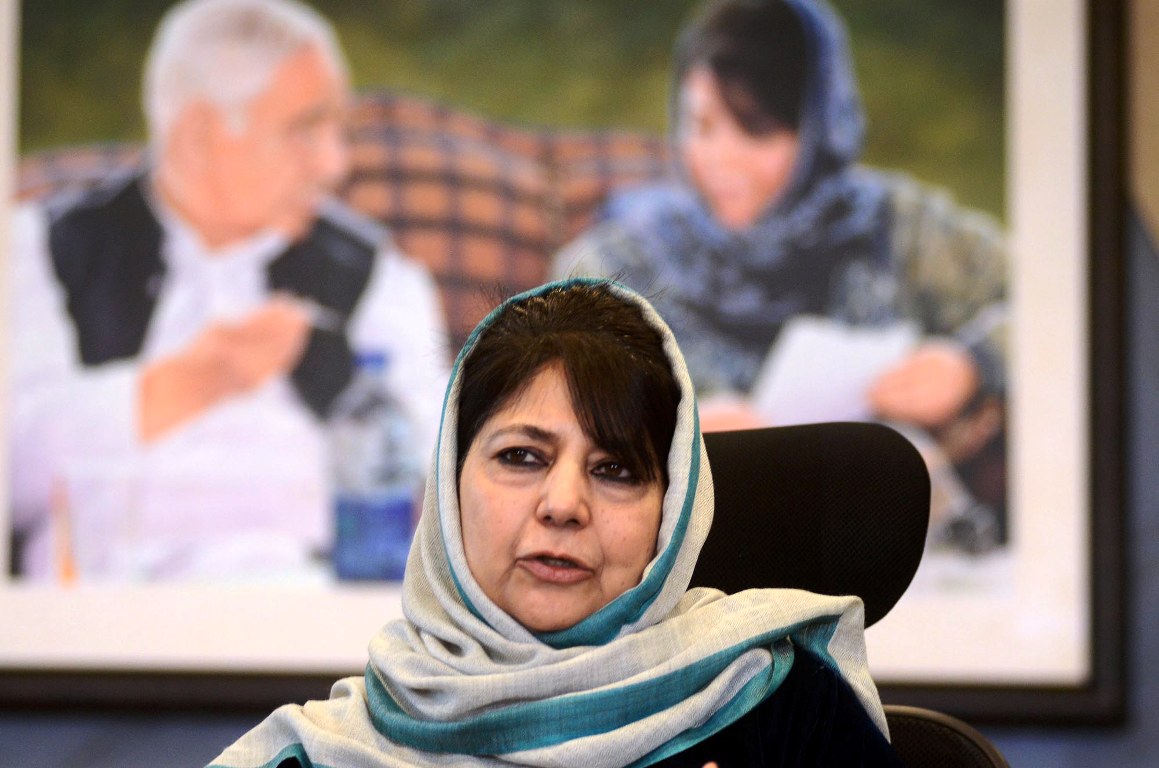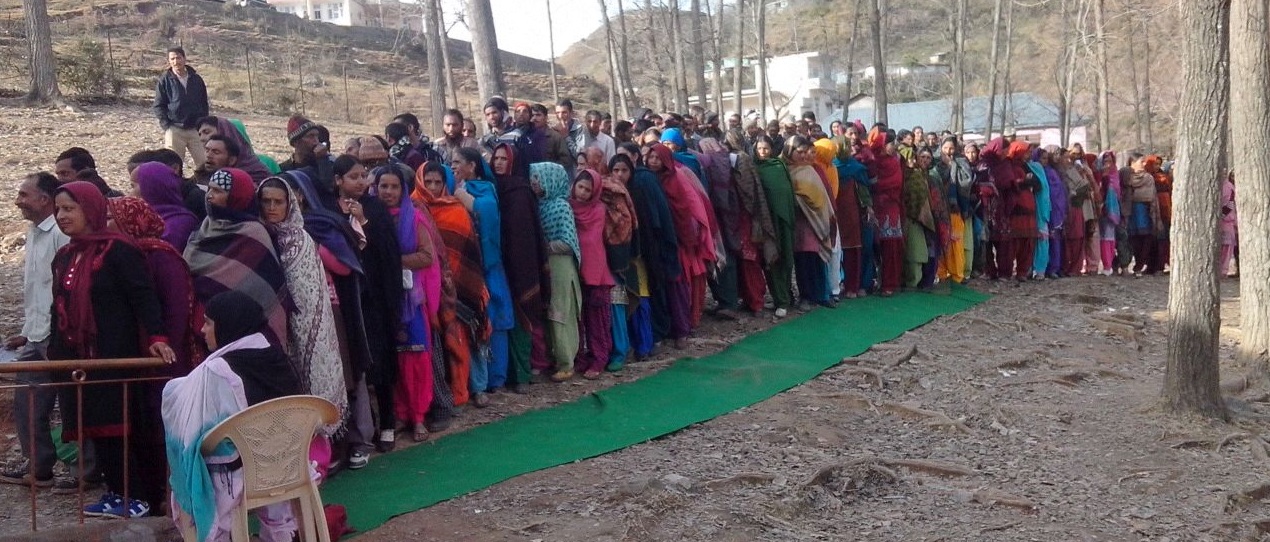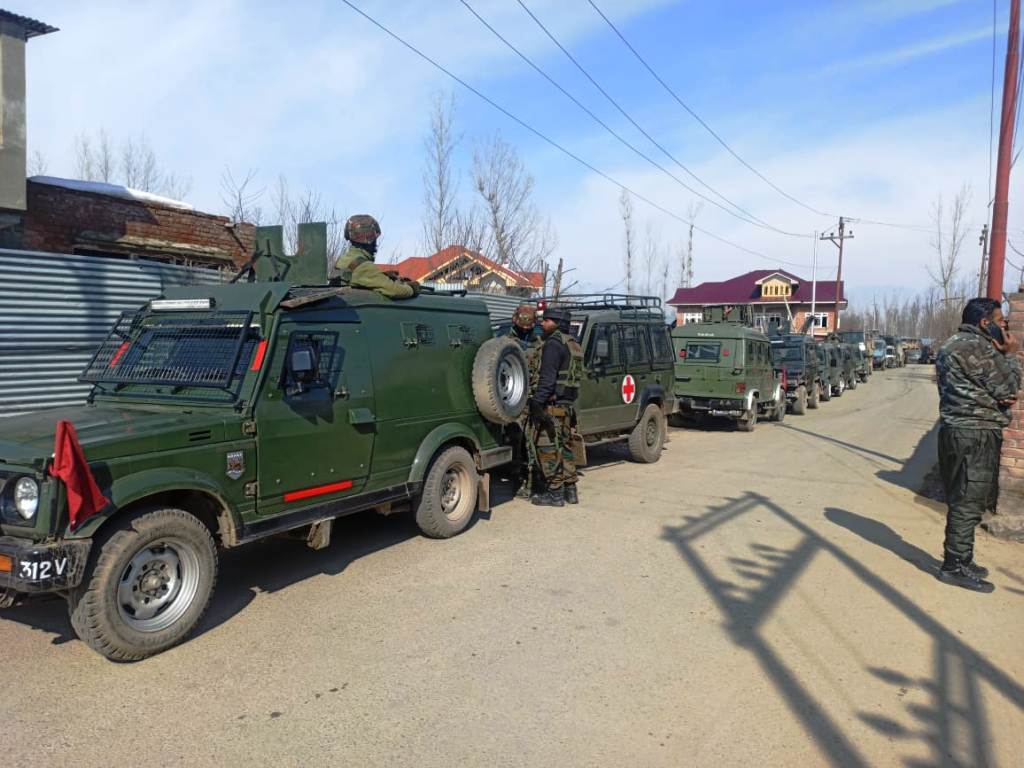by Ahmed Ali Fayyaz
SRINAGAR: It was not for nothing that the National Conference (NC) leaders Farooq Abdullah and Omar Abdullah were stressing on holding the Lok Sabha and Assembly elections together in Jammu and Kashmir. They knew it that NC’s arch-rival, Peoples Democratic Party (PDP), was passing through its worst times since Mufti Mohammad Sayeed launched it in 1999.
Indeed the euphoria Valley had witnessed for the NC several times from 1977 to 1983, is palpably extinct and there are no “heroes” in the post-1996 mainstream politics. But the last five years of courtship with the BJP has cost the PDP dearly as it has failed to deliver on the promises it had made to the Kashmiris in 2014. Finally, the BJP played a masterstroke when, in June 2018, it dumped the coalition partner with contempt.
Last 10 months have exposed Mehbooba Mufti’s party to its worst times. A large number of its key leaders and former MLAs and Ministers have resigned and joined other political parties. Some of its senior leaders like Syed Altaf Bukhari have been expelled before they would announce their separation. So it was the most opportune time for Farooq, who in his 40-year-long political career has lost only one election, to reclaim the bastion he had forfeited to the then PDP’s candidate Tariq Hamid Karra in the Lok Sabha elections of 2014.
By-elections on the Central Kashmir seat in April 2017 were necessitated as Karra quit the PDP and resigned as a Lok Sabha member. Contesting against greenhorns, including then PDP’s candidate Nazir Ahmad Khan, Farooq would have won irrespective of high or low voter turnout. It was an asymmetrical contest with the State’s highest-profile mainstream politicians who had served three times as Chief Minister, won five Assembly elections and two Lok Sabha elections and also served as Rajya Sabha member and a Union Cabinet Minister.
On April 9, 2017, polling was marred with clashes and violence that left 8 anti-election demonstrators dead and scores injured. Farooq emerged victorious even in the lowest ever turnout of 7.03 per cent. However, due to widespread disturbances and instability, NC failed to fully recover the ground it had lost in 2014. While it had lost all the three Lok Sabha seats to PDP, the Assembly elections of 2014 saw it lose half of its base in the traditional stronghold of Central Kashmir to Mufti’s party. NC and PDP bagged seven segments each and the 15th seat, Khansahab, was retained by the PDF chairman Hakeem Yasin.
In 2014 Assembly polls, PDP stood at number one in Central Kashmir with 2,43,750 votes, NC polled 2,22,919 and PDF got 26,449 votes.
The lowest turnout Lok Sabha elections of 2017 apart, NC during President’s Rule believed that the wind was blowing in its favour. The first real test of its strength, post-2014, was held on Thursday. Yet again, there was subdued enthusiasm and low turnout, though nobody died in clashes with security forces. As compared to 11.90 per cent in 1999, 25.90 per cent in 2014 and 7.03 per cent in 2017, the Central Kashmir seat recorded 14.10 per cent voter turnout.
According to authoritative sources, as many as 600 “potential saboteurs” had been detained by Police in Srinagar alone in addition to around 100 more in Budgam and Ganderbal districts. Polling was held in weeks of the imposition of ban on JKLF and Jamaat-e-Islami and a staggered crackdown on separatist leaders. This resulted in calm in Srinagar. However, there was near-total boycott in downtown Srinagar where zero-polling was reported at 90 booths and less than 20 votes each were cast on a hundred more booths.
Even as most of the around one lakh Gujjars, mostly in Kangan, Ganderbal and Chrar-e-Sharief, have been favouring NC, all the three key contestants— Farooq Abdullah (NC), Aga Syed Mohsin (PDP) and Imran Reza Ansari (PC) — had their eyes on around 3 lakh Shia voters spread in at least 8 Assembly segments. However, they too were remarkably lukewarm this time.
As per a tradition, the vote of the Qadeem faction of Shias is believed to have gone en bloc to ex-Minister Imran Ansari, who has succeeded his father and influential Shia leader late Maulvi Iftikhar Hussain as President of J&K Shia Association and has lately joined Peoples Conference (PC) after quitting PDP.

The traditional Jadeed faction of the Shias, which has its seat with the Agas of Budgam, is divided between PDP’s candidate Aga Syed Mohsin (brother of senior separatist leader and President of Anjuman-e-Sharee Shiaan Aga Syed Hassan of Budgam) and NC’s Farooq Abdullah. Former Ministers, Aga Syed Mehmood and Aga Syed Ruhullah, who have several times served as MLAs/MLC, are NC’s leaders who assiduously campaigned for the NC candidates in Shia localities across the Valley.
Contrary to many expectations, even the Shia localities posed to be lukewarm to the polling this time. Turnout was incredibly low in Zadibal (8.3%), Hazratbal (9.5%), Khanyar (9.1%), Habbakadal (4.3%), Sonwar (12.5%), Batmaloo (7.9%) and Chadoura (9.9%). It was modestly higher in Khansahab (24.3%), Beerwah (23.6%) and Budgam (18.8%). Of the 1,18,066 votes polled in these segments, less than 50 per cent has come from Shias. Beyond that, it’s the Sunni cadre vote of NC and PDP in Kangan (18,122), Ganderbal (12,839), Beerwah (23,281), Khansahab (22,182) and Chrar-e-Sharief (26,286) that will decide the fate of the winner and the first runner-up.
In addition to former Ministers Altaf Bukhari (Amirakadal) and Javed Mustafa Mir (Chadoura), former MLAs Maulvi Abid Ansari (Zadibal) and Dr Shafi Ahmad Wani (Beerwah) beside another prominent leader Saifuddin Bhat (Khansahab) have deserted the PDP in the last 10 months. Wani and Bhat have joined NC. Altaf Bukhari has publicly supported Farooq.
Former PDP Minister Qazi Afzal, who defeated Omar Abdullah in Ganderbal in 2002, has passed away recently. Altaf Bukhari, Shafi Wani, Saifuddin Bhat, Abid Ansari and Javed Mir had polled 88,442 votes for PDP’s total of 2,43,750 in Central Kashmir in the Assembly elections of 2014.
With just 14.10 per cent turnout, 1,81,843 votes have been cast among the total electorate of 12,93,935 in Central Kashmir.















